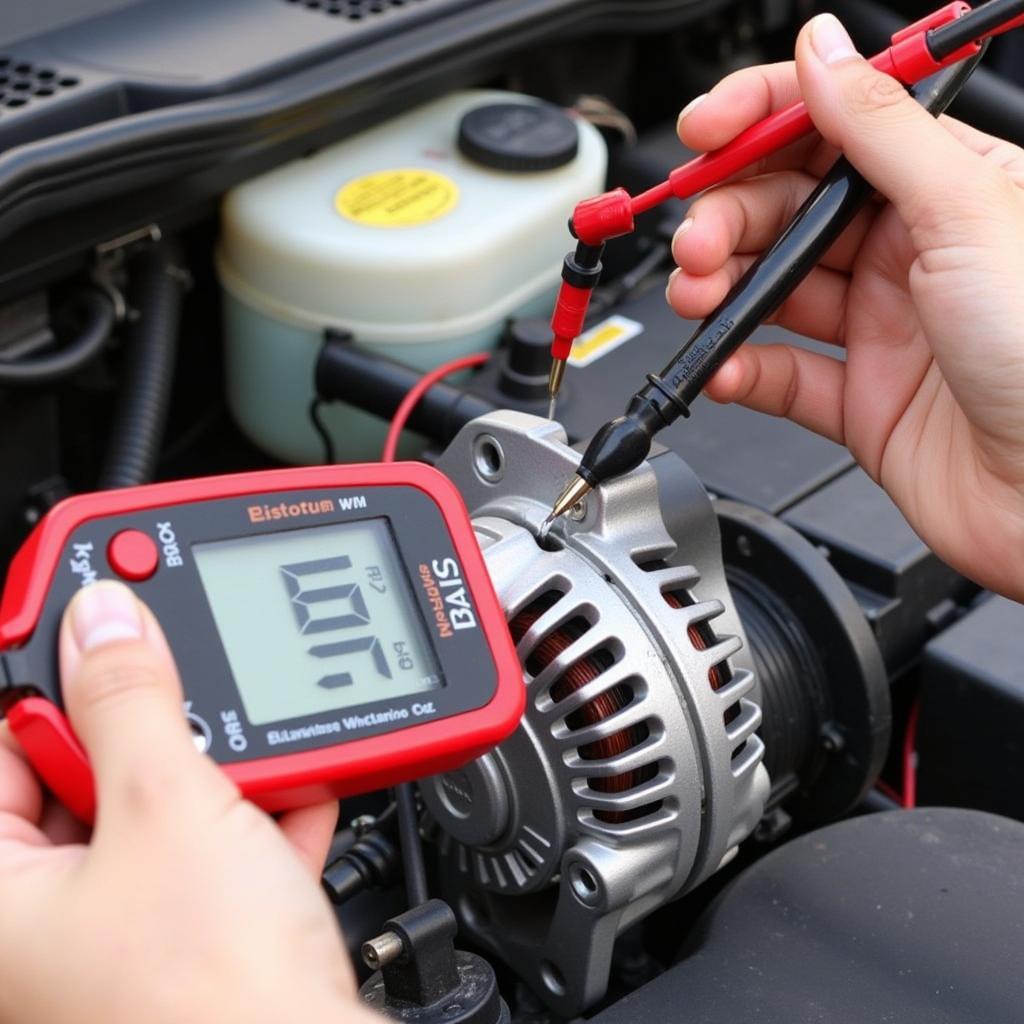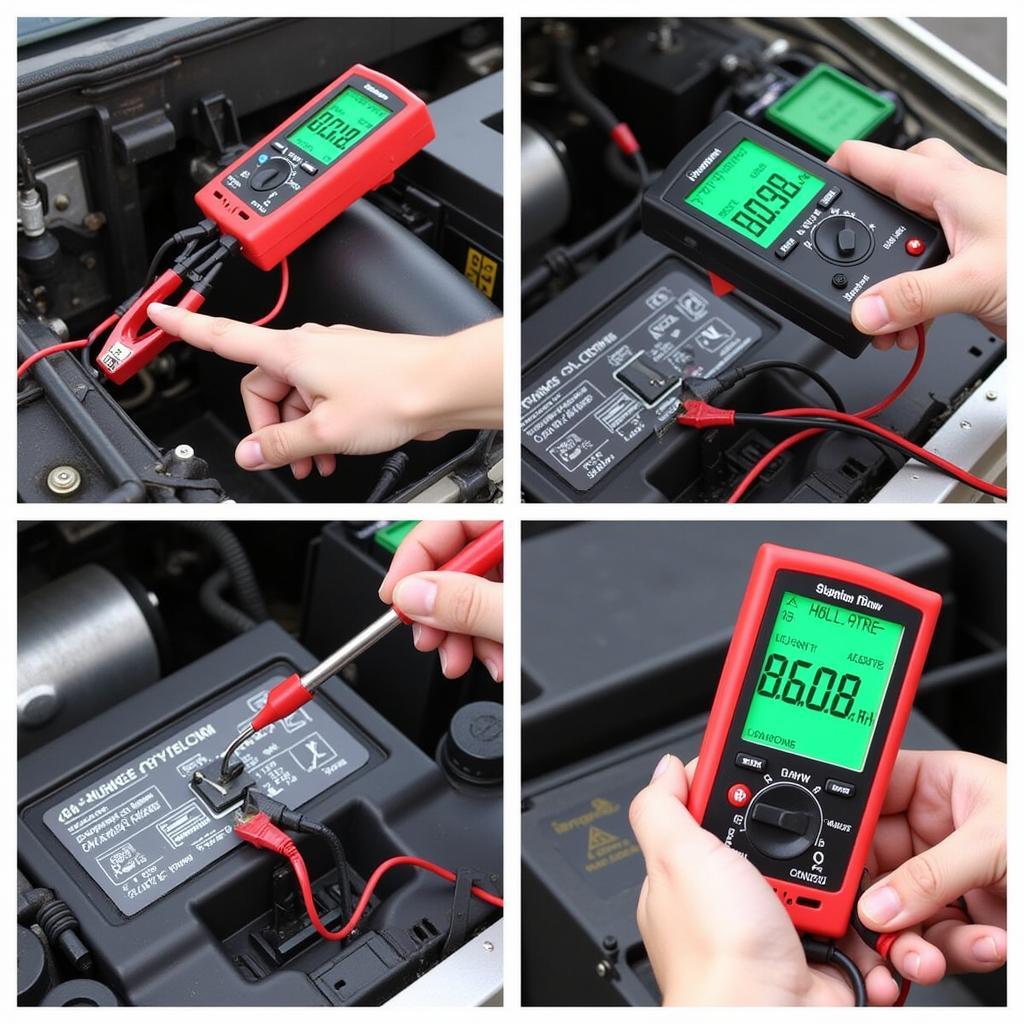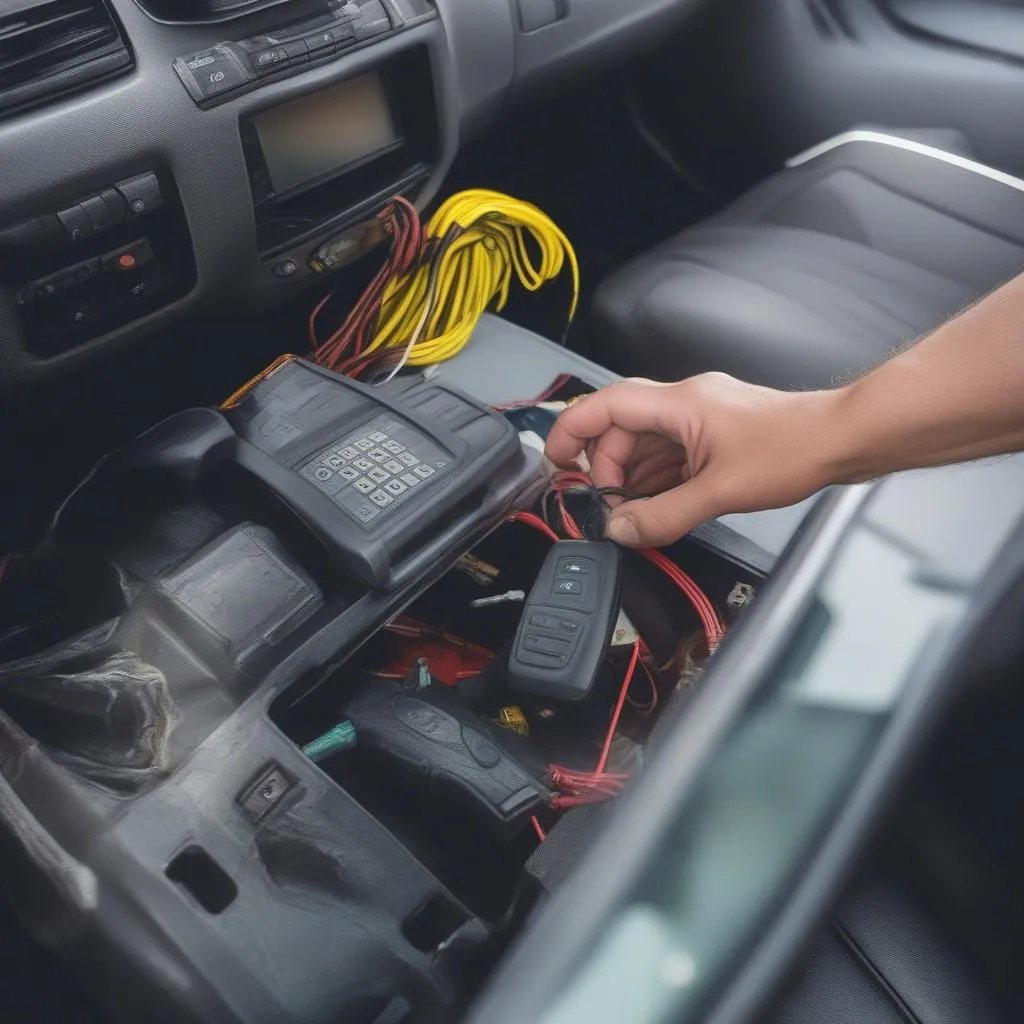A failing alternator can indirectly lead to a drained battery, leaving you stranded. Understanding the relationship between these two crucial components is vital for every car owner. This article will delve into the connection between a bad alternator and a dead battery, helping you diagnose and address the issue effectively. Does a bad alternator drain your battery directly? Not exactly, but it plays a significant role. Let’s explore this further.
How a Failing Alternator Impacts Your Battery
While a bad alternator doesn’t directly drain the battery like a parasitic draw, it prevents the battery from recharging. Your car’s alternator acts as a generator, supplying power to the electrical system and recharging the battery while the engine is running. If the alternator malfunctions, it can’t replenish the battery’s charge, leading to a gradual depletion of power. Eventually, the battery will be completely drained, resulting in a no-start condition. Think of it like a leaky faucet – the leak itself doesn’t empty the water tank, but the constant dripping will eventually drain it. If your battery is dead, it’s crucial to identify the root cause.
A faulty alternator might still provide some charge intermittently, leading to confusion. You might be able to jump-start the car, but the battery will drain again quickly. This on-again, off-again functionality often makes diagnosing a bad alternator tricky. It’s essential to check the alternator’s output voltage to confirm its proper operation.
does a bad alternator drain your battery
Signs of a Bad Alternator
Recognizing the symptoms of a failing alternator can save you from unexpected breakdowns. Dimming headlights, especially when accelerating, are a common sign. Other indicators include flickering interior lights, unusual whining or growling noises from the engine compartment, and problems with electronic accessories like power windows or the radio. A dead battery won’t charge efficiently with a bad alternator, so keep an eye out for slow cranking or clicking sounds when trying to start your car.
 Testing Alternator with Multimeter
Testing Alternator with Multimeter
Diagnosing and Fixing a Bad Alternator
If you suspect a bad alternator, it’s crucial to have it tested by a qualified mechanic. They can use specialized equipment to check the alternator’s output and determine if it’s functioning correctly. If the alternator is faulty, replacing it is the only solution. While some DIY enthusiasts might attempt the repair themselves, the process can be complex and requires specific tools.
“A bad alternator can be a real headache, especially if it leaves you stranded on the road,” says John Smith, a senior automotive technician at Smith Auto Repair. “Regular maintenance and having your charging system checked periodically can prevent these unexpected issues.”
Will a Bad Alternator Drain My Battery While the Car Is Off?
No, a bad alternator won’t directly drain your battery while the car is off. However, a faulty alternator could be a symptom of a broader electrical problem that might be draining your battery, such as a parasitic draw. A parasitic draw occurs when an electrical component continues to consume power even when the ignition is off. This can drain the battery overnight, leading to a no-start condition.
“Identifying the source of a parasitic draw can be challenging,” adds Jane Doe, lead electrical systems diagnostician at Doe Automotive Solutions. “It often involves systematically disconnecting circuits to isolate the culprit.”
 Car Battery Parasitic Draw Test
Car Battery Parasitic Draw Test
buick enclave battery drain issue
Conclusion
A bad alternator doesn’t directly drain a battery, but its failure to recharge the battery while the engine is running will inevitably lead to a dead battery. Recognizing the signs of a faulty alternator is crucial for preventing inconvenient breakdowns. If you experience any of the symptoms discussed, have your charging system inspected promptly to prevent further issues and ensure your vehicle’s reliable operation. Remember, a well-functioning alternator is essential for a healthy battery and a smooth driving experience.


